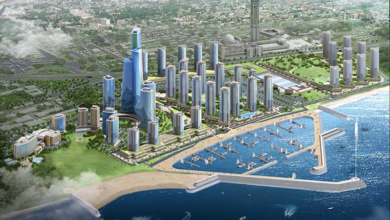
The Chadian government’s decision to close the country’s lengthy northern border, on the 5th of January, may be good to prevent Islamic State fighters’ crossing over. However, the calculus behind the decision will absolutely have a disastrous economic impact on men, women and children in the northern side of the country.
Chadian Prime Minister Albert Pahimi Padacké has ordered the closure of his country’s long border with Libya to prevent Islamic State fighters’ crossing over. The government declared the area a military zone because militants are threatening to cross into its territory, according to the government.
“There have been systematic reports in Libya of the militants moving south following their defeat in Sirte, Libya. Hence, Chad worried that fighters will flee south across the border, and the country would take immediate action” Padacké said in a statement on Thursday, 5th January.
“Closing the border has a terrible impact”
Nadjibe Eric, economist and national expert in public finance, argued that Chad is a landlocked country, and Libya is one of Chad’s most important trading partners, especially for the north side that imports most of its needs from Libya, and exports live animals to Libya including cattle. However, the decision is expected to have negative economic impacts on the Northern areas of the country.
“Closing the border with Libya already has a terrible impact on the regions of Kanem and Barh El Gazel, commodity prices doubled just a week after closing the border,” said Mahamat Zen Kassim, associate trader.
Opportunity for Cameroon and Sudan
Historically, Chad has been a country of traders. The ancient kingdoms of Kanem, Borno, and Wadai built their power on trade with Egypt, Sudan and Libya, during the colonial period. Trade increased recently with Libya. Therefore, the economy of much of northern Chad, which depends exclusively on Libya, will certainly be harmed if there is lasting instability in the Chadian-Libyan borders.
Eric considers Libya as a bridge to the Middle East markets for the Chadian cattle exporters, particularly camels’ exporters. That Chadian Merchants will absolutely head to other alternative bridges which definitely would be Sudan and Cameroon for merchandise.
“As Chadian importers; there is no other way for us at the moment but doing business with Sudan. Extended family and tribal connections across borders encouraged traders to maintain long-range African financial and commercial networks.” Kassim said.
Production possibility
Following the closure of the Chadian Nigerian borders, businesses in Chad have lost 50% of their revenue, the Honorary Consul in Chadian Consulate in Kano, Abubakar Assair has said, in an interview with Daily Trust in Yola, Nigeria.
On the other hand, many northerners still economically identified more closely with south Libya than with N’Djamena. Nevertheless, all these events have led us to an amazing question and not a simple one in conjunction with the government’s decision to close its border with Libya; will such decisions eventually force the Chadian government to produce locally?
Long-term investment
Eric argued that it’s the right time for the government to diversify our national economy, produce locally and invest in national public goods.
« We need access to long-term financing, in financing long-term investment will give way to more productive and diversified system. » Eric said.
N’Djamena is apprehensively observing the unfolding of events that will decide the future of its most important neighbor and partner, and seems to be aware that lasting instability in Libya could prove dangerous economic consequences, and both domestic policy and regional geopolitics.





